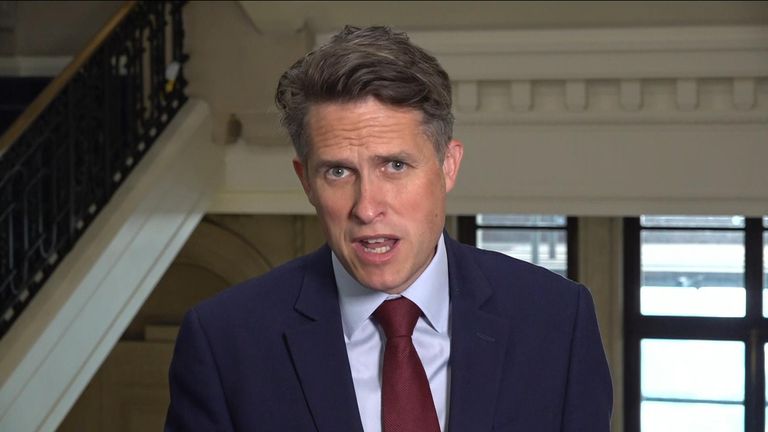After months of missed schooling and disruption for parents and teachers, the catch-up plan is out – and it was quickly given low marks.
A sum of £1bn is being put into one-on-one and small group tutoring, an intervention which is generally agreed to be an effective way of making up lost school time, if organised well.
I filmed with pupils at a state school in Staffordshire last year which had been offering online tutoring for years, to help a small number of disadvantaged pupils, with some fantastic results.
But it’s clear from speaking to those involved that a far more ambitious plan was put forward by the Department for Education – costing £13bn, I’m told – and the Treasury took the carving knife to it.
A Treasury source made clear that they didn’t feel the plans were fully worked through, saying “it’s right for both children and the taxpayer that we know what we’re buying before we spend”.
In other words, they felt the proposals did not justify the considerable price tag – around a quarter of the annual schools’ budget – and Education Secretary Gavin Williamson could not convince them otherwise.
Mr Williamson, who didn’t deny he had pushed for far more money, spent the morning insisting that a £1.4bn investment in education is a lot, especially given it builds on the £1.7bn from last year.
Meanwhile, teaching unions and education policy groups are panning it as a “damp squib” and a “huge disappointment”.
Even the government’s education catch-up tsar, Sir Kevan Collins, was lukewarm.
A longer school day – one of the ideas championed by Sir Kevan – has been shelved for now, although Mr Williamson himself said he was enthusiastic about the benefits of it.
It’s certainly true that despite agreement on the need to repair the terrible damage from the pandemic, particularly for disadvantaged pupils, there are very different ideas on what is needed.
Subscribe to the All Out Politics podcast on Apple Podcasts, Google Podcasts, Spotify, Spreaker
Extending the school day by half an hour, for instance, one of the more radical ideas reported to have been culled from the catch up plans, is unpopular with both parents, according to polling, and teaching unions – one union suggesting it would have a negative impact on pupils’ mental health.
Labour say it’s extra-curricular activities and breakfast clubs which should have priority, rather than just subjects such as English and maths.
But today’s funding works out as only around £75 per pupil, in a year in which schools have had to invest heavily in technology for online learning and implementing social distancing.
The Education Endowment Foundation – which is not partisan and worked with the government on its catch-up plans last year – said the funding is “only a fraction of what is required”.
There will be a government spending review in the autumn and perhaps the Department for Education has been promised more.
But that’s a very long wait for children and certainly it appears that Mr Williamson’s plans have been dramatically undercut.
Source: Read Full Article

